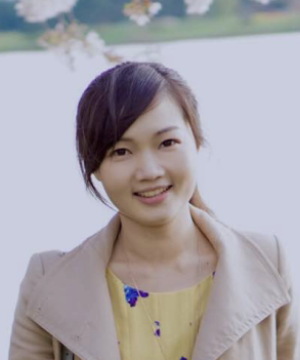
Abstract:
During the last 20 years, there has been a lot of progress in applying neural networks to many machine-learning tasks. However, their employment in scientific machine learning to learn complex responses of physical systems from experimental measurements has been explored much less. Unlike classical machine learning tasks, such as computer vision and natural language processing where a large amount of unstructured data is available, physics-based machine learning tasks often feature scarce and structured measurements.
In this talk, we will consider learning of heterogeneous material responses as an exemplar problem to investigate automated physical model discovery from experimental data. In particular, we propose to parameterize the mapping between excitation and corresponding system responses in the form of nonlocal neural operators and infer the neural network parameters from experimental measurements. As such, the model is built as mappings between infinite-dimensional function spaces, and the learned network parameters are resolution-agnostic: measurements with different resolutions can be integrated to train the same model. Moreover, the nonlocal operator architecture also allows the incorporation of fundamental mathematical and physics knowledge, which further improves the learning efficacy and robustness from scarce measurements.
To demonstrate the applicability of our nonlocal operator learning framework, three typical scenarios in physics-based machine learning will be discussed: (1) learning of a material-specific constitutive law, (2) learning of an efficient partial differential equation solution operator, and (3) development of a foundation constitutive law across multiple materials. As an application, we learn material models directly from digital image correlation displacement tracking measurements on a porcine tricuspid valve leaflet tissue, and we will show that the learned model substantially outperforms conventional constitutive models.
Speaker’s Bio:
Yue Yu received her B.S. from Peking University in 2008, and her Ph.D. from Brown University in 2014. She was a postdoc fellow at Harvard University after graduation, and then she joined Lehigh University as an assistant professor of applied mathematics and was promoted to full professor in 2023. Her research lies in the area of numerical analysis and scientific computing, with recent projects focusing on nonlocal problems and scientific machine learning. She has received a National Science Foundation Early Career award and an Air Force Office of Scientific Research Young Investigator Program award.
Last Updated: February 26, 2024 - 12:07 pm